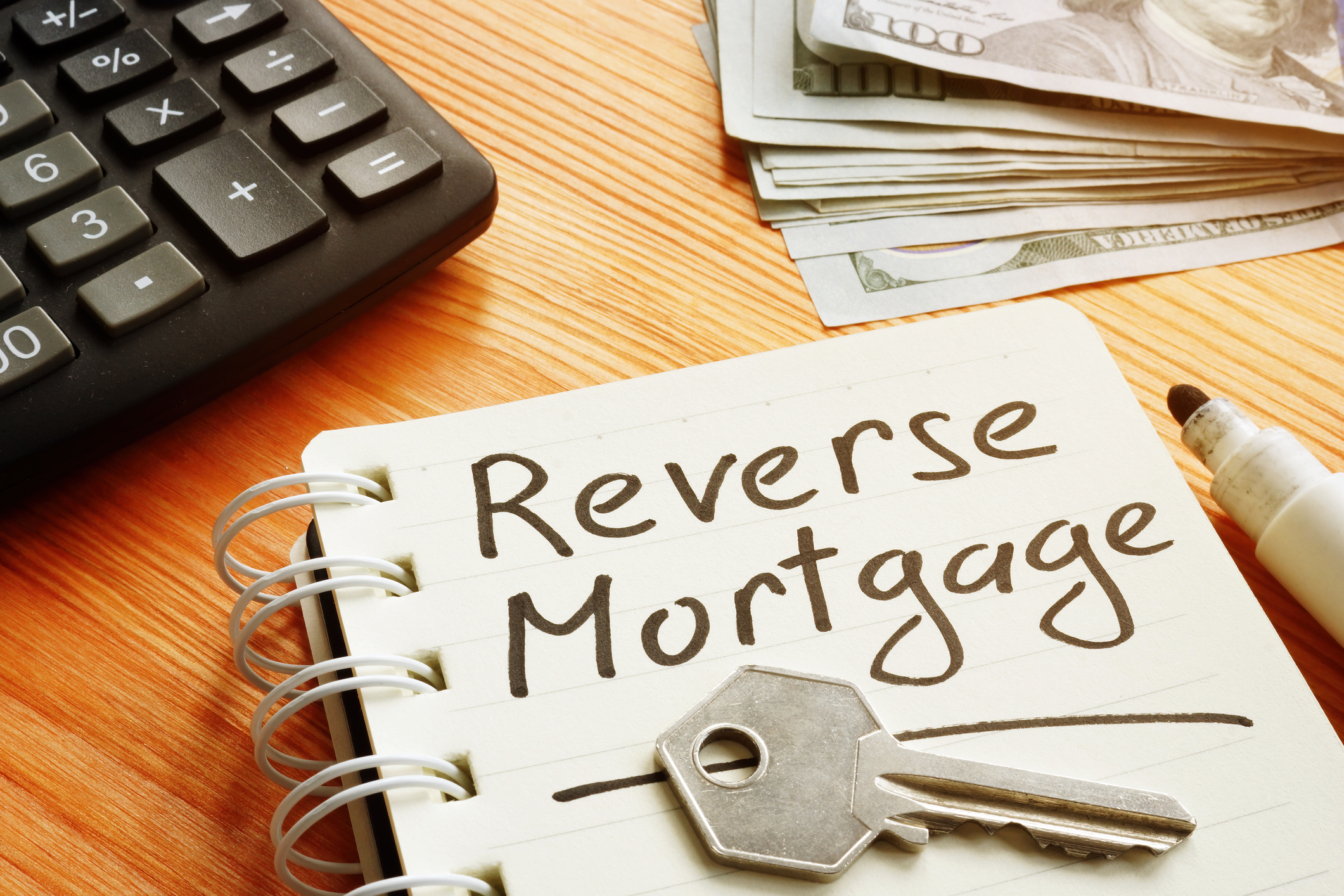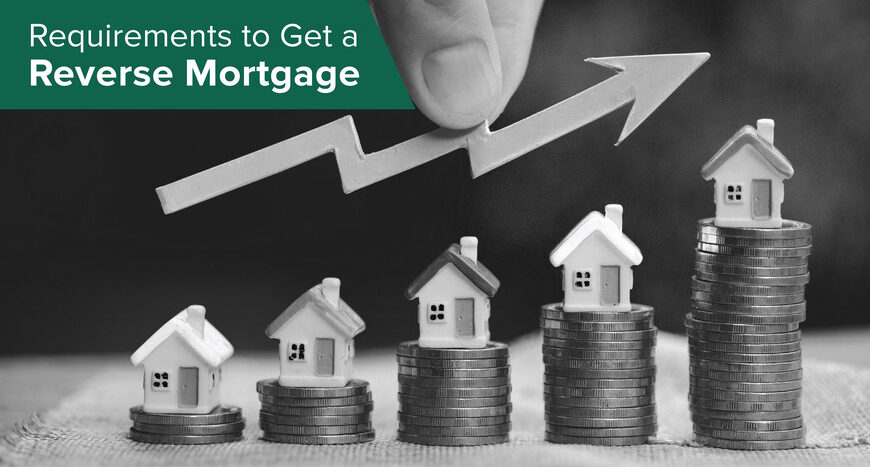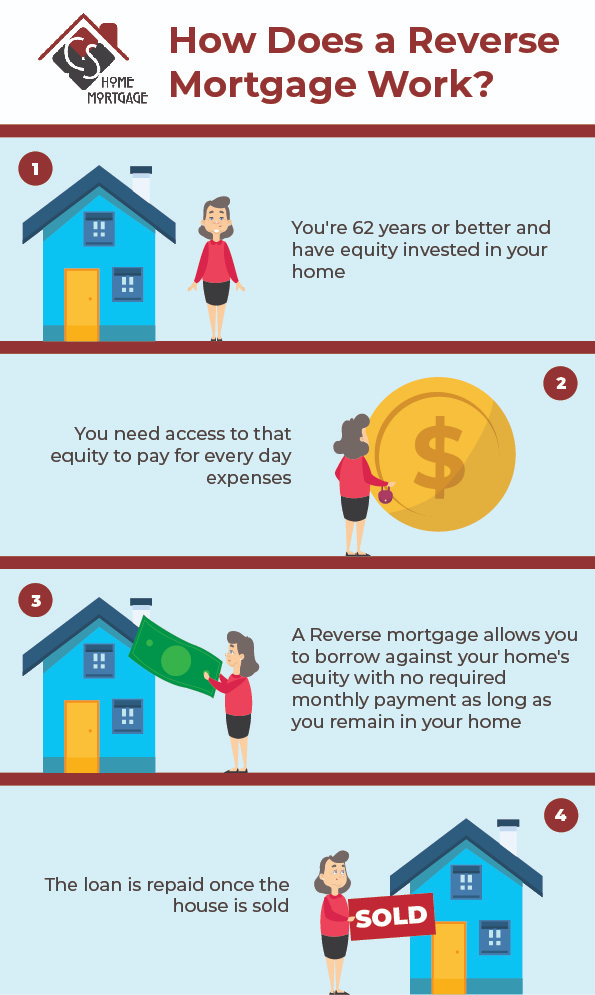Why More Homeowners Are Deciding to Purchase Reverse Mortgage
Why More Homeowners Are Deciding to Purchase Reverse Mortgage
Blog Article
Step-By-Step: How to Acquisition a Reverse Home Loan With Confidence
Navigating the intricacies of purchasing a reverse home loan can be difficult, yet an organized technique can empower you to make informed choices. It starts with analyzing your eligibility and understanding the subtleties of various financing alternatives readily available in the market (purchase reverse mortgage). As we discover each step, it ends up being obvious that confidence in this economic choice hinges on thorough preparation and educated selections.
Understanding Reverse Mortgages

The key system of a reverse home mortgage includes loaning against the home's value, with the funding quantity raising gradually as passion accumulates. Unlike standard home loans, debtors are not called for to make monthly repayments; rather, the funding is repaid when the property owner markets the home, relocates out, or dies.
There are 2 main types of reverse home loans: Home Equity Conversion Mortgages (HECM), which are government insured, and proprietary reverse home loans provided by exclusive loan providers. HECMs usually offer higher defense as a result of their regulatory oversight.
While reverse home loans can provide economic alleviation, they likewise include expenses, including origination fees and insurance policy premiums. Therefore, it is vital for potential consumers to completely recognize the terms and effects before continuing with this economic alternative.
Assessing Your Eligibility
Eligibility for a reverse home mortgage is largely determined by a number of essential elements that potential customers should think about. Applicants need to be at least 62 years of age, as this age requirement is established to ensure that customers are approaching or in retirement. Additionally, the home must work as the customer's primary house, which implies it can not be a trip or rental building.
An additional essential element is the equity position in the home. Lenders usually require that the customer has a sufficient amount of equity, which can affect the amount offered for the reverse home mortgage. Generally, the a lot more equity you have, the bigger the car loan amount you might get.
Additionally, prospective customers have to demonstrate their capacity to satisfy monetary obligations, including real estate tax, home owners insurance, and maintenance prices - purchase reverse mortgage. This evaluation often consists of an economic assessment carried out by the lending institution, which reviews earnings, credit report, and existing financial debts
Finally, the residential or commercial property itself should satisfy details standards, including being single-family homes, FHA-approved condominiums, or certain manufactured homes. Understanding these aspects is crucial for determining qualification and getting ready for the reverse mortgage process.

Looking Into Lenders
After determining your qualification for a reverse home loan, the following action involves researching lenders that supply these monetary items. It is essential to identify trustworthy lenders with experience backwards mortgages, as this will certainly ensure you receive reliable advice throughout the process.
Begin by reviewing lending institution credentials and certifications. Try to find loan providers that are members of the National Reverse Home Loan Lenders Association (NRMLA) and are approved by the Federal Real Estate Administration (FHA) These associations can suggest a dedication to ethical methods and compliance with sector criteria.
Reading client testimonials and testimonials can offer insight into the lending institution's credibility and client solution high quality. Sites like the Better Business Bureau (BBB) can also provide rankings and problem histories that may help educate your decision.
Furthermore, why not try these out seek advice from economic advisors or real estate therapists that concentrate on reverse mortgages. Their know-how can help you navigate the alternatives readily available and recommend reliable lending institutions based upon your unique financial situation.

Comparing Financing Options
Comparing loan choices is an important step in safeguarding a reverse home mortgage that lines up with your financial objectives. When analyzing various reverse mortgage products, it is important to take into consideration the specific features, costs, and terms associated with each option. Beginning by examining the kind of reverse home loan that finest matches your requirements, such as Home Equity Conversion Mortgages (HECM) or proprietary fundings, which might have various qualification standards and advantages.
Following, take note of the rate of interest and fees connected with each financing. Fixed-rate loans provide security, while adjustable-rate alternatives may use reduced initial rates yet can fluctuate over time. In addition, consider the in advance costs, including home mortgage insurance policy costs, source fees, and closing expenses, as these Learn More can dramatically influence the general cost of the loan.
In addition, examine the settlement terms and just how they align with your long-term economic method. Recognizing the effects of exactly how and when the finance need to be paid back is important. By thoroughly comparing these elements, you can make an informed decision, ensuring your selection supports your financial wellness and gives the protection you seek in your retired life years.
Settling the Purchase
When you have thoroughly assessed your alternatives and chosen the most appropriate reverse home mortgage product, the next step is to complete the acquisition. This process includes several vital steps, making sure that all needed paperwork is properly finished and sent.
First, you will need to collect all required documents, including evidence of income, real estate tax declarations, and house owners insurance policy documents. Your loan provider will give a list of details records required to assist in the authorization procedure. It's important to provide total and exact info to stay clear of delays.
Next, you will certainly undertake a complete underwriting procedure. During this stage, the lender will assess your monetary circumstance and the worth of your home. This might include a home evaluation to identify the residential property's market value.
As soon as underwriting is complete, you will certainly obtain a Closing Disclosure, which details the final terms of the funding, consisting of charges and rate of interest. Review this file very carefully to make sure that it aligns with your expectations.
Verdict
To conclude, browsing the procedure of acquiring a reverse home loan calls for a complete understanding of qualification requirements, persistent research study on lenders, and cautious comparison of funding choices. By systematically complying with these actions, people can make enlightened decisions, ensuring that the chosen mortgage straightens with monetary goals and needs. Ultimately, a knowledgeable strategy fosters confidence in securing a reverse home mortgage, providing monetary stability and assistance for the future.
Look for lending institutions who are participants of the National Opposite Home Mortgage Lenders Association (NRMLA) and are approved by the Federal Housing Management look at this now (FHA)Comparing car loan options is a critical step in safeguarding a reverse home loan that aligns with your economic objectives (purchase reverse mortgage). Start by assessing the kind of reverse mortgage that finest suits your demands, such as Home Equity Conversion Home Mortgages (HECM) or proprietary fundings, which might have different eligibility criteria and benefits
In conclusion, navigating the procedure of buying a reverse home loan calls for a comprehensive understanding of qualification requirements, thorough research study on lenders, and cautious contrast of funding choices. Inevitably, a knowledgeable method cultivates confidence in protecting a reverse mortgage, providing economic security and assistance for the future.
Report this page